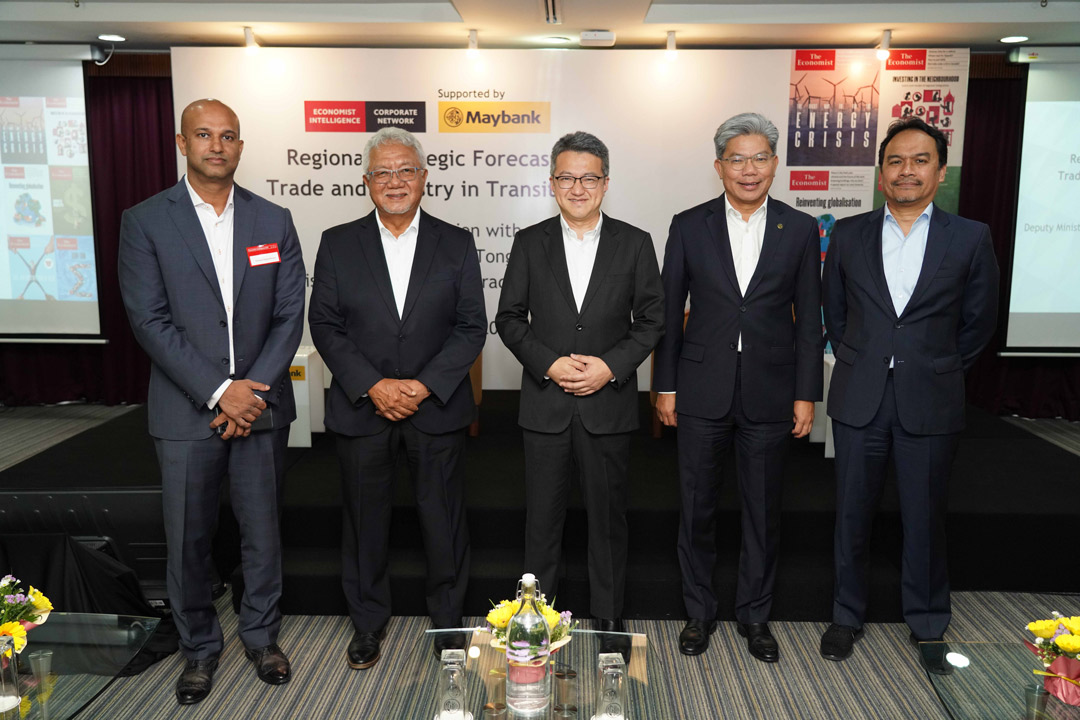
This is a moment of transition for international trade and the global economy. The US and Chinese economies, while both exhibiting unusually high volatility, hit a trough in the middle of 2023. Their volatility has had ripple effects around the rest of the world, and the shape of their recovery will be a major force in 2024. The return of industrial policy, ongoing escalation of China-US competition and the turning of the inflation cycle will shape the global economy in new ways, even as there are rising growth stars amongst both emerging and developed markets. Supply chain realignment has moved firmly out of the conference hall and boardroom and onto the ground: Who are the winners and losers in the year ahead?
While South-East Asia will lead the digital transition acceleration in Asia, there will be places in the rest of the world that will show larger increases in business opportunity in 2024. Companies are assessing these developments and the new geography of global business by focusing on risk resilience.
At the recent discussion hosted by Economist Intelligence Corporate Network and Maybank, we were honoured to have Yang Berhormat (The Honourable) Liew Chin Tong, Malaysia’s Deputy Minister of Investment, Trade, and Industry, as our distinguished guest. Participants discussed China’s prospects and the future dynamics within ASEAN.
These dynamics, shaped by the megatrends of geopolitics, the realignment of global supply chains away from China, and the ongoing green transition, are collectively steering trade and investments towards the region. A testament to this shift is in 2022, ASEAN accounted for an impressive 17% of the world's total foreign direct investment (FDI) inflows — a remarkable jump from just 2.7% in 2002.
Environmental goals are increasingly dictating global trade and investment policies, and creating new opportunities. This is thanks to industrial policies aimed at developing domestic renewable energy industries, including electric vehicles (EV) and battery manufacturing. Based on this trajectory, EIU forecasts that Southeast Asia’s GDP will grow by an average of 4.6% a year from 2023-2027, almost double the global growth average of 2.5% for the same period.
This naturally raises the question: How can ASEAN collaborate effectively to sustain this growth and further elevate prosperity?
“This is a pivotal moment for ASEAN. We should collaborate to create a more vertically integrated and connected regional supply chain, and achieve significant industrial growth together.
Malaysia is well positioned to lead these opportunities, as the initiatives outlined under the MADANI Economy Framework, New Industrial Master Plan (NIMP 2030) and National Energy Transition Roadmap (NETR) serve as catalysts to attract high-value investments.
Crucially, we must drive transfer of skills and knowledge, high-skilled employment and more equitable distribution of wealth with the goal of building a stronger middle-class society.” Yang Berhormat (The Honourable) Liew Chin Tong.
“At Maybank, we are cognisant of our clients’ increasing focus on managing climate risks, pursuing pragmatic transition solutions, and responding to the rise of artificial intelligence (AI). Through timely injections of FDIs and technical expertise, ASEAN companies, particularly manufacturers, can capitalise on this to ascend the value chain. Maybank is eager to facilitate our clients in seizing these opportunities.” Group CEO of Maybank Global Banking, Dato’ Muzaffar Hisham.
Background

The event took place on 27 September 2023 at Menara Maybank, and we had the opportunity to gather insights from key opinion leaders (from left to right):
- Sumana Rajarethnam, Director, South-East Asia of Economist Intelligence Corporate Network (EICN)
- Tan Sri Dato' Sri Zamzamzairani Mohd Isa, Maybank Chairman
- YB Liew Chin Tong, Malaysia Deputy Minister of Investment, Trade, and Industry (MITI)
- Dato' Khairussaleh Ramli, Group President and Chief Executive Officer, Maybank
- Dato’ Muzaffar Hisham, Group CEO Global Banking, Maybank

